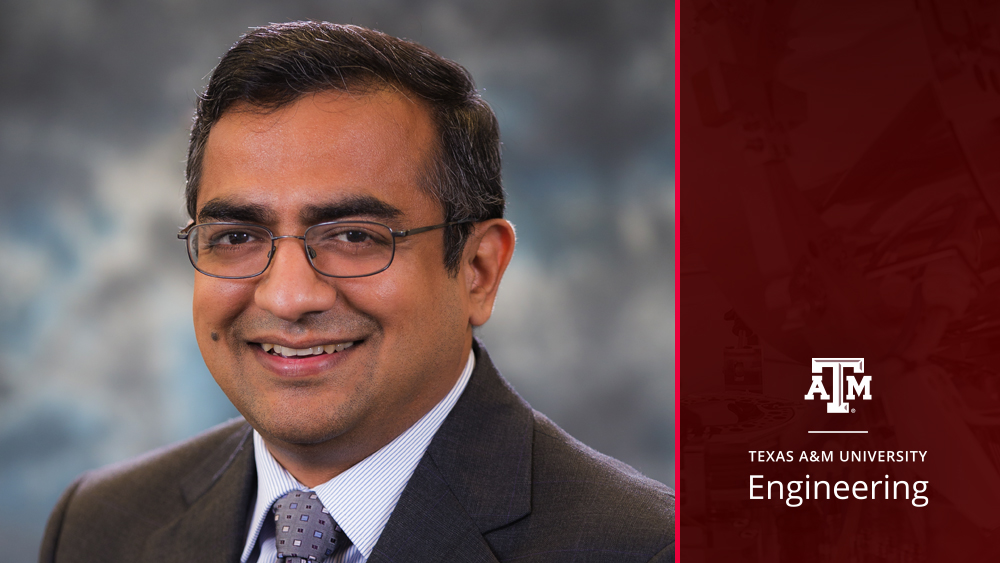
Dr. Tanmay Lele has been named Unocal Professor in the biomedical engineering and chemical engineering departments at Texas A&M University.
The professorship, awarded by the Texas A&M College of Engineering, is in recognition of Lele’s exceptional record as a researcher and educator.
Lele joined the Department of Biomedical Engineering as a full professor in summer 2020, after moving up through the ranks at the University of Florida, where he began his career as an assistant professor in chemical engineering. In addition to his primary appointment, Lele also serves as a professor in the Artie McFerrin Department of Chemical Engineering.
He received his doctoral degree in chemical engineering from Purdue University and conducted his postdoctoral research in vascular biology at Harvard Medical School and Boston Children’s Hospital.
Lele’s research focuses on mechanobiology — the mechanical aspects of biology — where he works to understand how cells sense external mechanical forces, as well as how they generate mechanical forces, and how these mechanical forces impact cell function. A key interest is in the field of cancer mechanobiology, with a focus on the role of the nucleus in the development of abnormal tissue structure and function.
He also holds a courtesy appointment in the Texas A&M Health Science Center and is building an experimental lab at the Institute for Biosciences Technology in the Texas Medical Center.
In May, Lele received a $5 million Recruitment of Established Investigators grant from the Cancer Prevention and Research Institute of Texas to further knowledge about cancer and how it progresses. As such, Lele represents a major investment of the state and university in applying engineering to solve important problems in cancer in collaboration with world-leading life medical researchers. His professorship further recognizes his leadership, and will support his continued pioneering cancer research on the cutting edge of “onco-engineering”.